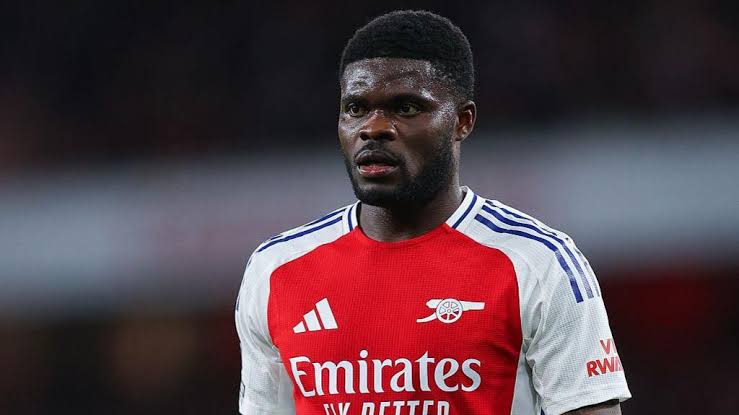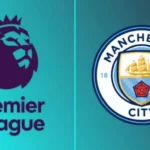Arsenal’s Handling of Thomas Partey Case: A Comprehensive Analysis

The world of professional football was shaken in July 2025 when former Arsenal midfielder Thomas Partey was charged with multiple serious offences just days after leaving the North London club. The timing of these charges, coming so soon after the Ghanaian international’s departure from Arsenal, has raised significant questions about how the club handled the situation during the nearly three-and-a-half-year period when Partey remained under police investigation while continuing to represent the Gunners on the pitch.
Arsenal manager Mikel Arteta’s emphatic response that he is “100%” confident the club followed the correct procedures has done little to quell the debate surrounding one of the most complex and sensitive cases in recent Premier League history. The situation presents a fascinating case study in how modern football clubs navigate the delicate balance between legal processes, player welfare, competitive interests, and public scrutiny.
The Thomas Partey case represents a protracted legal process that unfolded against the backdrop of his continued involvement with Arsenal Football Club. Understanding the chronology of events is crucial to comprehending the complexity of the situation and the decisions made by all parties involved.
The investigation began in February 2022 when Metropolitan Police first received a report of rape. This initial complaint would eventually lead to a comprehensive investigation spanning multiple alleged incidents and involving three different women. The fact that Partey continued to play regularly for Arsenal throughout this period has become a central point of controversy and discussion among fans, legal experts, and football commentators.
On June 30, 2025, Partey’s contract with Arsenal officially expired, marking the end of his five-year association with the club. The timing of what followed would prove significant: just four days later, on July 4, 2025, the Metropolitan Police announced that the 32-year-old midfielder had been charged with five counts of rape and one count of sexual assault.
The charges relate to alleged offences that reportedly took place during 2021 and 2022, a period when Partey was an established member of Arsenal’s first team squad. The allegations involve three separate women, with the charges broken down as follows: two counts of rape relating to one woman, three counts of rape in connection to a second woman, and one count of sexual assault linked to a third woman.
The handling of criminal investigations involving professional athletes presents unique challenges within the British legal system. When allegations of serious crimes are made against individuals who are simultaneously public figures and employees of major commercial enterprises, the intersection of legal procedure, employment law, and public interest creates a complex web of considerations.
Under English law, being under investigation does not constitute guilt, and individuals maintain their right to continue their normal activities unless specific bail conditions or court orders dictate otherwise. This fundamental principle of “innocent until proven guilty” forms the cornerstone of the legal system, but it creates practical challenges for employers, particularly in high-profile industries like professional football.
Arsenal’s decision to continue selecting Partey during the investigation period aligns with standard legal and employment practices. Without formal charges or specific restrictions imposed by the courts, the club was under no legal obligation to suspend or terminate the player. However, this technical legal position doesn’t address the broader questions about moral responsibility, duty of care, and public perception that inevitably arise in such circumstances.
The length of the investigation – spanning from February 2022 to July 2025 – reflects the complexity of such cases and the thoroughness required by law enforcement when dealing with serious allegations. Sexual assault and rape cases often involve extensive evidence gathering, witness interviews, and careful consideration of all available information before charges can be brought forward.
Arsenal Football Club’s handling of the Partey situation has been characterised by a careful balance between legal compliance, competitive considerations, and public relations management. The club’s official statements throughout the period have been notably restrained, adhering to legal advice about not commenting on ongoing investigations while attempting to maintain confidence in their decision-making processes.
Mikel Arteta’s definitive statement that he is “100%” confident the club followed the right processes suggests a structured approach to managing the situation. This confidence likely stems from consultation with legal experts, adherence to established club protocols, and coordination with relevant authorities throughout the investigation period.
The club’s approach appears to have involved several key elements. Firstly, maintaining open communication with law enforcement authorities to ensure full cooperation with the investigation. Secondly, following established internal procedures for handling such sensitive matters, which likely involved senior management, legal counsel, and possibly the club’s board of directors. Thirdly, continuing to treat Partey as an employee entitled to the presumption of innocence while the legal process ran its course.
From a practical standpoint, Arsenal’s decision to continue selecting Partey makes sense from multiple perspectives. The player was a significant financial investment, having been purchased for £45 million from Atletico Madrid in October 2020. His contributions on the pitch were substantial, and removing him from the squad without formal charges could have exposed the club to potential legal action for breach of contract or unfair treatment.
Thomas Partey’s role at Arsenal during the investigation period was significant both tactically and financially. His performances on the pitch continued at a high level, suggesting that whatever personal stress he may have experienced from the ongoing investigation did not substantially impact his professional output.
During the 2024-25 season, his final campaign with Arsenal, Partey made 35 Premier League appearances and scored four goals as the Gunners finished second in the table. His contribution to Arsenal’s run to the Champions League semi-finals, where they made 12 appearances before being eliminated by eventual winners Paris Saint-Germain, demonstrated his continued importance to the team’s tactical setup.
From Arteta’s perspective as manager, the situation presented a complex challenge. While dealing with the off-field uncertainty surrounding one of his key players, he had to maintain focus on Arsenal’s sporting objectives and manage the potential impact on team morale and performance. The manager’s public support for the club’s handling of the situation suggests a unified approach from the coaching staff and management.
The competitive implications of the Partey situation extend beyond individual matches. Arsenal’s pursuit of major trophies and Champions League qualification required the manager to field his strongest available team, and Partey’s technical abilities and experience made him a valuable asset in achieving these objectives. The decision to continue selecting him reflects the prioritisation of sporting performance within the legal framework that permitted his continued involvement.
The intersection of professional football and serious criminal allegations inevitably attracts intense media attention and public scrutiny. Arsenal’s handling of the Partey case has been subject to extensive analysis, criticism, and debate across various platforms and among different stakeholder groups.
Fan reactions have been particularly complex and divided. Some supporters have questioned the club’s moral stance in continuing to field a player under investigation for such serious offences, arguing that Arsenal should have taken a more proactive approach to protecting the club’s reputation and values. Others have defended the club’s position, emphasising the importance of due process and the presumption of innocence.
The media coverage has reflected this division, with some outlets criticising Arsenal’s approach as prioritising sporting success over moral considerations, while others have praised the club for adhering to legal principles and avoiding prejudicial actions that could have compromised the investigation or the player’s rights.
Social media discourse has been particularly intense, with the case becoming a focal point for broader discussions about how sports organisations should handle allegations of serious crimes involving their employees. The debate has extended beyond Arsenal supporters to include broader discussions about accountability, transparency, and moral responsibility in professional sports.
Arsenal’s approach to the Partey situation can be evaluated against how other football clubs and sports organisations have handled similar circumstances. The sports industry has seen various approaches to managing players under criminal investigation, ranging from immediate suspension to continued selection pending legal resolution.
Some clubs have opted for precautionary suspensions when serious allegations arise, prioritising reputation management and demonstrating zero tolerance for alleged misconduct. However, such approaches carry legal risks, including potential breach of contract claims and discrimination allegations if not handled consistently and fairly.
Other organisations have followed similar paths to Arsenal, maintaining the employment and selection of individuals under investigation while cooperating fully with law enforcement. This approach emphasises legal compliance and the presumption of innocence, though it can attract criticism for appearing to prioritise competitive interests over moral considerations.
The Premier League itself has not established specific mandatory protocols for handling such situations, leaving individual clubs to develop their own approaches within the broader legal framework. This flexibility allows for case-by-case assessment but can lead to inconsistency across the league and confusion among stakeholders about appropriate standards.
The Partey case highlights the complex intersection between legal requirements and ethical considerations in professional sports. While Arsenal may have fulfilled all legal obligations, questions remain about whether legal compliance is sufficient when dealing with allegations of serious crimes.
From an ethical standpoint, the club faced a dilemma between respecting due process and demonstrating appropriate sensitivity to the serious nature of the allegations. The decision to continue fielding Partey could be viewed as either principled adherence to legal norms or insufficient consideration of the broader implications for all parties involved.
The case also raises questions about transparency and communication with stakeholders. While legal constraints may have limited Arsenal’s ability to provide detailed explanations of their decision-making process, the lack of detailed public information has contributed to speculation and criticism.
Employment law considerations add another layer of complexity. Professional footballers have significant employment rights, and any action taken by clubs must be justified within established legal frameworks. Suspension or termination without formal charges could expose clubs to substantial legal and financial risks.
The prolonged nature of the investigation and the subsequent charges have had significant implications for all parties involved. For Thomas Partey, the situation has involved nearly three and a half years of uncertainty while maintaining his professional career at the highest level. His legal team’s statement that he “welcomes the opportunity to finally clear his name” suggests relief that the matter is now proceeding through the formal legal process.
For Arsenal, the situation has required careful navigation of competing interests and pressures. The club has had to balance sporting objectives, legal compliance, financial considerations, and public relations challenges while maintaining focus on their primary business of football competition.
The alleged victims and their supporters have had to endure a lengthy investigation process while watching the individual at the centre of the allegations continue to perform in high-profile matches. This aspect of the case highlights the broader challenges within the criminal justice system when dealing with serious allegations involving public figures.
The Partey case is not isolated within football, reflecting broader challenges that the sport faces in dealing with serious allegations involving players. Recent years have seen several high-profile cases involving Premier League and international players, each handled differently by the clubs and authorities involved.
These cases have prompted discussions about whether football needs more comprehensive and consistent approaches to handling such situations. Some have called for league-wide protocols that would provide clearer guidance to clubs and ensure more consistent responses across different organisations.
The financial stakes in modern football add complexity to these situations. Players represent significant investments, and decisions about their involvement can have substantial financial implications for clubs. This reality creates pressure to maintain players’ availability while legal processes unfold, potentially conflicting with other considerations.
As the legal process continues with Partey’s expected appearance at Westminster Magistrates’ Court on August 5, 2025, the case will likely provide important precedents for how similar situations are handled in the future. The outcome of the legal proceedings will be crucial in determining whether Arsenal’s approach can be considered vindicated or whether alternative approaches might have been more appropriate.
The case highlights the need for clearer guidance and protocols within professional sports for handling serious criminal allegations. While respecting due process and legal rights is fundamental, there may be scope for developing more comprehensive frameworks that better balance all stakeholder interests.
For Arsenal specifically, the situation demonstrates the complexity of modern football club management, where sporting, legal, financial, and reputational considerations must be carefully balanced. The club’s handling of the case will likely influence their approach to similar situations in the future and may inform best practices across the industry
The Thomas Partey case represents one of the most complex and challenging situations faced by a Premier League club in recent years. Arsenal’s decision to continue fielding the midfielder throughout the investigation period reflects a careful balance of legal, sporting, and practical considerations, though it has not been without controversy.
Mikel Arteta’s confidence that the club followed the right processes suggests a structured and considered approach to managing an unprecedented situation. However, the broader questions raised by the case about moral responsibility, transparency, and accountability in professional sports remain relevant and important.
As the legal process continues, the case will serve as an important reference point for how football clubs handle similar situations in the future. The intersection of sports, law, and public interest ensures that such cases will continue to generate significant attention and debate, highlighting the need for clear principles and consistent approaches across the industry.
The ultimate resolution of the legal proceedings will provide important context for evaluating Arsenal’s handling of the situation. Until then, the case remains a compelling example of the complex challenges facing modern football clubs when serious allegations intersect with sporting competition and public scrutiny. The lessons learned from this situation will likely influence how the football industry approaches similar challenges in the years to come, potentially leading to more comprehensive frameworks for balancing competing interests and responsibilities.
Whether Arsenal’s approach will be vindicated by subsequent events remains to be seen, but their handling of the Partey case will undoubtedly be studied and referenced as the football industry continues to grapple with these difficult and sensitive issues.















